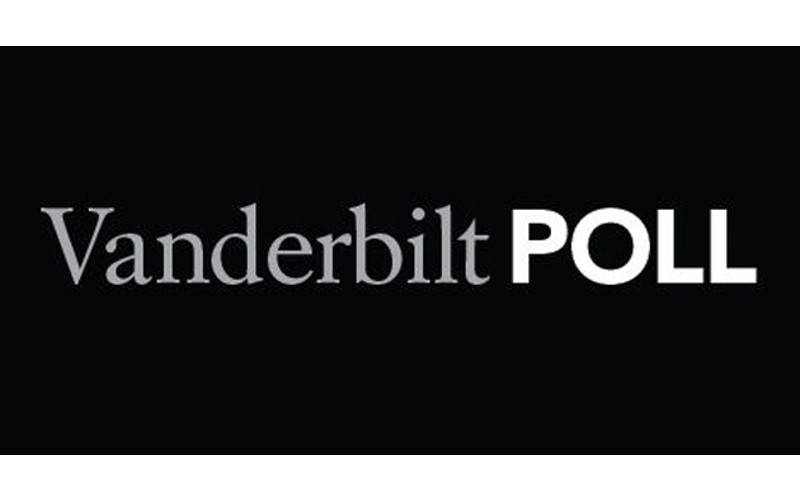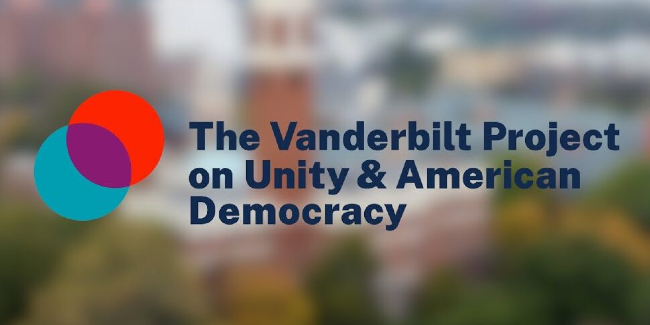- A majority of respondents now view Nashville as being back on the right track, reflecting the first increase in four years
- Mayor Freddie O’Connell enjoys substantial approval from across the aisle
- Dealing with the city’s growth—from affordability to transit—is a consistent theme across nearly all issues
According to the 2024 Vanderbilt Poll–Nashville, a majority (53 percent) of Nashvillians believe the city is on the right track, which represents a nine-point increase from last year. It is the first time in four years the measure has increased.
Likely contributing to this overall sense of optimism are opinions that Nashville’s economy is very or fairly good (68 percent), that 78 percent of locals like or love living in the city, and that there is strong support for Mayor Freddie O’Connell.
The poll was fielded March 1–21 and included 1,014 respondents from Metropolitan Nashville, across all political affiliations.

The poll also revealed widespread agreement among Nashvillians about challenges and opportunities for the city, such as home affordability and transportation issues. While there are some differences on particular issues when segmented by political party, age, income and time living in Nashville, the results indicate more consensus than division.
“The poll shows a lot of bipartisan consensus around priorities for local officials and where the city should be going,” said Vanderbilt Poll Co-Director Josh Clinton, who holds the Abby and Jon Winkelried Chair at Vanderbilt and is a professor of political science. “We get a picture of a relatively unified city that stands in contrast to what is going on with politics and divisions we see across the rest of the country.”
High approval of O’Connell
O’Connell seems to embody Nashville’s general agreement. A large majority of residents, regardless of their politics, think that the Nashville mayor has done a good job since his election last September. His overall approval rating is 71 percent, including 56 percent among Republicans, 68 percent among Independents and 85 percent among Democrats.
This popularity is likely tied to the better “right track/wrong track” numbers.
“While you could argue that he still is in a bit of a honeymoon phase, the mayor’s overall approval defies the polarization that we see blocking a lot of action in current national politics,” said John Geer, co-director of the Vanderbilt Poll, senior advisor to Chancellor Daniel Diermeier, professor of political science and holder of a Getrude Conaway Vanderbilt Chair. “These high marks should help his ability to govern and accomplish things that will keep the city on the right track and ensure the public continues to support him as mayor.”
Metro growth concerns
Even as most residents believe Nashville is headed in the right direction, the overwhelming majority (80 percent) believe that the city has grown too quickly. Forty-seven percent of respondents say that the growth and changes in Nashville over the past few years have made their daily lives worse, while only 25 percent say the transformation has made their lives better.
Attitudes toward growth diverge largely based on how long the respondent has lived in the city. More than half (55 percent) of the longtime locals believe the growth and changes of the past few years have made their lives worse, in contrast to the 29 percent of newer residents who feel the same way.
This same divide appears in views of whether the city is headed in the right direction. Almost two-thirds (62 percent) of Nashvillians who have been in the city for less than five years see the city as headed in the right direction, while a majority (52 percent) of longtime residents feel the city is on the wrong track.
Affordable housing
The Vanderbilt Poll–Nashville results also show the depth of the problem with affordable housing. After crime and education, residents’ top priorities for Mayor O’Connell are making rents more affordable (63 percent) and making homebuying more affordable (62 percent).
Housing concerns exist at all ages and at all income levels, with only 9 percent of residents feeling they can afford to buy a home in their current Nashville neighborhood.
Traffic and public transportation
Music City’s boom also continues be reflected in the time Nashvillians spend in traffic. According to the poll, now nearly half of all commuters (a combined 48 percent) spend between 30 and 90 minutes in traffic each day, and a full 20 percent are in the car for longer than that daily.
Not surprisingly, 59 percent of respondents indicated reducing area traffic as a top priority for the city, and 52 percent named improving public transportation as a high priority. Moving forward with a citywide transit referendum—which is positioned to appear on the November 2024 ballot—has overwhelming (84 percent) and bipartisan support (70 percent of Republicans, 86 percent of Independents and 92 percent of Democrats).
Clear divisions on some issues
Significant political divisions still show up on some issues. Republicans and Democrats vary greatly on who they think best represents them and their interests in the state. And people on each side of the aisle differ in their thoughts on how Nashville elected officials should relate to the state legislature.
More than half (57 percent) of polled residents identifying as Republicans say that Gov. Bill Lee best represents them and their interests. For Democrats, O’Connell is the choice at 55 percent.
The poll also revealed a stark party contrast in how local and state officials should work together. Responses show that the great majority of Republicans (82 percent) think that local officials should work with the governor and legislature on issues affecting Nashville, while only 33 percent of Democrats agree. Inversely, 67 percent of Democrats think that Nashville elected officials should actively challenge the governor and legislature on decisions involving the city.

(Vanderbilt University)
“The relationship between the city and state government officials and bodies is one area where we see some clear political division and contentiousness,” Geer said. “These issues highlight the complexity of what the city faces moving forward as it negotiates and deals with the governor and legislature issues that confront Tennessee and our community.”
Lack of knowledge on future projects
City residents may agree on what they believe the city should concentrate on, but the poll shows that many have little or no knowledge about the improvement and expansion projects local officials are planning.
In 2022, the Metro Planning Commission adopted a plan called “Imagine East Bank,” which will redevelop hundreds of acres along the East Bank and Cumberland River. When asked about their awareness of the East Bank project, a majority of respondents said they knew nothing (32 percent) or very little (26 percent) about the initiative. Notably, among those who were aware of the project, 82 percent indicated building more affordable housing should be a priority for the project.
The city also is considering a revitalization of the Nashville Fairgrounds and racetrack. Nearly half (48 percent) of locals report not following this project at all. Of those residents who responded, 49 percent want the racetrack to be preserved and to add affordable housing units to the area.
“Even with a lot of agreement about many of the city’s priorities, the lack of awareness of large projects like East Bank and the Fairgrounds point out the potential issues lurking just below the surface,” Geer said. “If they aren’t keeping up with these projects, new unfavorable information about the project could quickly undermine support for it.”
Overall local government support
O’Connell’s very favorable approval numbers are part of a general uptick in the positive perception of a number of government organizations and public officials. This year, 60 percent of Nashvillians said they approve of the job that the Metro Nashville Council is doing, an increase from 57 percent in 2023 and 54 percent in 2022.
Further, 57 percent of respondents report approval of the Metro Nashville School Board’s performance, compared with 51 percent in 2023 and 54 percent in 2022. Adrienne Battle’s approval as director of the Metro Nashville School Board now sits at 66 percent, up from 61 percent in 2023.
The Metro Nashville Police Department received a 73 percent approval rating, continuing an upward three-year trend beginning at 68 percent in 2022. The Nashville Fire Department continues to score very high, with 97 percent approval.
City priorities
Crime took the top spot this year as a priority for O’Connell and the metro government. The Vanderbilt Poll–Nashville indicates that 71 percent of local residents consider crime as a top issue to be addressed. Almost two-thirds (63 percent) of respondents say that there is an area within about a mile from where they live that they would not walk alone at night.
While improving public education dipped from the No. 1 priority in 2023 at 74 percent, it still remains No. 2 at 67 percent this year, according to the poll.
Affordable housing continues to be a major concern, with 63 percent of those answering prioritizing affordable rents and 62 percent reporting that affordable home prices are a top issue.
Several key issues dropped significantly on respondents’ priority lists. Focusing on the problems of low-income people decreased in priority by eight points from last year to 54 percent. “Dealing with the State Legislature” dipped nine percentage points to 36 percent. And addressing homelessness decreased six points to 52 percent.
Airport issues
Currently, the Metropolitan Nashville Airport Authority is responsible for planning, construction, operation and management of Nashville International and John C. Tune airports.
When polled about who should govern and set policies for Metro Nashville Airport Authority, 79 percent of respondents said the Metro Government of Nashville and Davidson County should oversee the MNAA. This total includes 90 percent of Democrats, 74 percent of Independents and 66 percent of Republicans. On the subject of possible airport expansion, 82 percent were in favor, with all political parties reporting roughly equal support.

